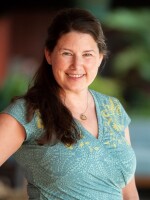In July of 1989, a team of 23 executives recruited from businesses, unions, industry associations, and the US Department of Labor began a year-long project to study America's labor market's current state and prospects.
The study included six other nations: Germany, Sweden, Denmark, Ireland, Japan, and Singapore goal with a goal to produce a composite picture of how systems in other countries work with each other to cultivate a skilled workforce.
The commission released its findings and recommendations, “America’s Choice: High Skills or Low Wages,” in June of 1990. Several years earlier, another paper, “A Nation at Risk,” had raised alarms about the state of America’s education system specifically and the consequences for the country’s economic, social and political standing in the world if education was not improved.
One in particular recommendation seemed to resonate from the America’s Choice report: the need for an “outcomes-or standards-based” approach to education. The experts reading the commission’s report attributed the problems in education to two factors: a lack of clarity and consensus about what schools should be teaching and a shortage of incentives for students, teachers, and schools to try to do better. Subsequent presidents Clinton, Bush also strove to make the education system better.
Unfortunately, efforts toward educational equity in the past 20 years haven’t made much difference. We have documented some types of inequity and have raised awareness of them in many cases, but we have done little actually to change them. And, in the process, we have created new forms of inequity.
In The Future of Smart, Ulcca Hansen traces two dueling forces in education back to an essential conflict in human experience across cultures. Hansen cites a massive shift in our experience of the world that began during the Scientific Revolution and became a dominant worldview that changed the very meaning of education.
Ulcca Hansen is Chief Program Officer at Grantmakers for Education. An internationally-recognized expert on educational transformation, Hansen has a BA in philosophy from Drew University, a Ph.D. from the University of Oxford, and a JD from Harvard Law School. She is a two-time TEDx speaker and has been recognized nationally for her leadership as a Harry S. Truman Scholar, a British Marshall Scholar, and a Paul and Daisy Soros Fellow.




